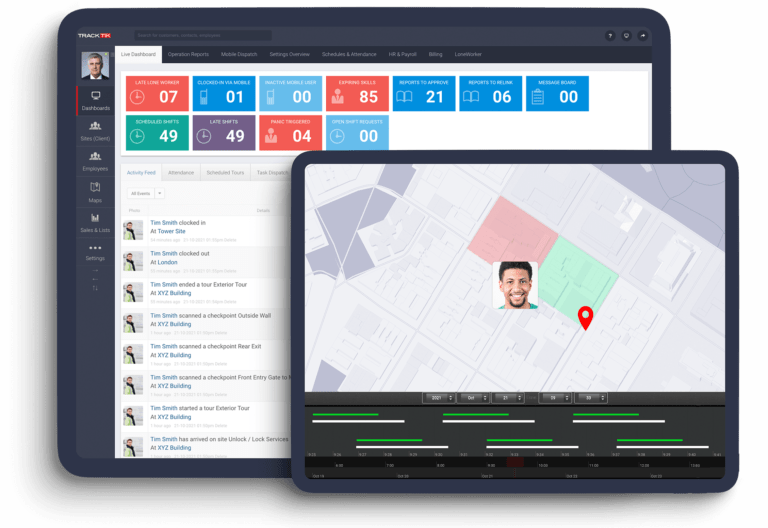How can you know if we are heading for a recession? The answer depends on who you ask. It seems like everyone is waiting for the other shoe to drop. When it does, many contract security firm owners, especially those starting a security company, worry the impact will be devastating on their business. And rightly so.
When a recession hits, the first things companies cut are what management believes to be extraneous expenses. All too often that mistakenly includes security services. Businesses get lulled into a false sense of security (pun intended) because “nothing has happened in so long” they decide it’s safe to reduce or eliminate guard hours.
The irony here is that the presence of security is exactly what made the environment safe in the first place. And when people get desperate during a recession, that’s exactly when security is needed most.
The smart play is to get ahead of the gathering clouds. You need to prepare for the fact that some of your accounts will be cutting back on manned hours at the first signs of an economic slowdown (no matter how short-sighted that strategy may be).
In this article, you’ll find several actionable tips to modify your security business plan to meet the current (and future) economic challenges.
Surviving the Recession Using 5 Business Plan Tips
- Take Control of Your Cash Flow
- Focus on Customer Retention
- Adapt Your Business Model
- Streamline Employee and Operations Management
- Perform a Market Analysis
1. Take Control of Your Cash Flow
Setting business goals and creating a monthly financial plan is easy. It’s sticking to them that’s the hard part. You must tightly manage expenses to maximize profitability.
How much does it cost to run your business every month? Do you really know where all the money goes? If not, find out. How much is spent on miscellaneous expenses, supporting activities that could be automated or performed remotely, or lost to non-billable overtime? (See Tip #4 Streamline Employee and Operations Management)
Forecast administrative staff and workforce needs to understand the complexities of wage and hourly rates in 2022 — including anticipating a drop in billable hours. Do the math at -10%, -20%, and -30% to play out worst-case scenarios. How many guards will you need at a minimum to maintain contractual commitments without paying overtime?
Take stock of equipment, software, and supply inventories. Decide what you need now, and what upgrades can wait. How large is your office? Can you reduce the square footage of leased space, move to a smaller space, or negotiate a lower rent?
On the income side of the balance sheet, review your billing for accuracy before sending out an invoice (for guarding services and the proper recipient), be sure to consistently send them out, and follow up for payment if not paid within the agreed terms.
2. Focus on Customer Retention
Customer retention is one of the best ways to recession proof your business. Make the effort to improve relationships with your existing customer base. It may be a periodic phone call, an on-site visit, or lunch. All are good opportunities to ask how their business is going, what could be improved about the services you provide, and generally build rapport with clients.
Keep in mind accounts may be experiencing similar effects on their business; they’re battling the recession as well. Offer to set up flexible agreements with a range of hours or a sliding scale for example. Recommend temporary changes to the contract to get everyone through the tough times ahead. Ninety or eighty percent of something is better than one hundred percent of nothing.
3. Adapt Your Business Model
Expanding Contracts and Services to Meet Demand
Trying to grow in the face of a recession? What related services can you offer? Can you expand into event security if your firm is focused on industrial or construction security services, or move into residential security if your firm already protects corporate access? Or vice-versa? The key here is to add related services without adding to infrastructure or costs.
Specializing Services to Target a Niche
Going into survival mode and seeking to reduce overhead and cut costs? Focus on a niche security service and become the go-to firm for that specialty in your local market, like personal security, armored vehicle services, or catering to marijuana dispensaries. Just make sure the niche you choose isn’t already saturated in your market. (See Tip #5 Perform a Market Analysis).
4. Streamline Employee and Operations Management
Security is a people-centric business with a thin-margin game. After labor, materials, and overhead expenses, most guard firms average a 5% profit margin. If not careful, that evaporates quickly after accounting for non-billable overtime, the cost of on-site visits, and inaccurate time reporting.
Tighten up administrative functions to improve workforce management and efficient scheduling to cut down on things like non-billable overtime and client reporting expenses. Look into online security guard training platforms instead of footing the bill for instructor-led classes held at a nearby hotel.
Sometimes, it takes money to make (or save) money. While this may contradict Tip #1 (Take Control of Your Cash Flow), allocating resources to automate processes and boost performance through software is a worthwhile investment.
TrackTik’s workforce management solutions are designed not only to ensure operational efficiency, but also deliver a maximum return on your investment.
- Intelligent scheduling reduces non-billable overtime by automatically assigning only officers under their monthly hour ceilings to posts.
- GPS-enabled time clock solutions eliminate early clock-ins and late clock-outs to shave hundreds of “ghost” hours off annual labor costs.
- Replace costly, inefficient on-site supervisor visits with remote command center capabilities. Save on fuel and vehicle fleet maintenance costs while improving visibility to the entire workforce.
- Speed client reporting and automate communications through a centralized reporting dashboard. Fewer admins spend less time writing and correcting reports, while all clients get access to near-real-time information through a secure online portal.
Find out how much your firm can save on any or all of these issues. Explore our back office suite software uniquely designed for security workforce management.
Focus on lowering guard turnover. Implement workforce policies to keep guards satisfied and offer perks to increase retention. In the long run it costs a lot less to keep a high quality employee on staff than to train a continuous stream of replacements.
5. Perform a Market Analysis
Periodically reassess the local competitive market to gauge where your company stands. How do your rates compare to others providing similar services? Do you need to adjust rates to be more competitive, or are you leaving money on the table?
Are your competitors hiring or downsizing? Check their websites and local job boards for ads from competitors to get an idea of what positions they are hiring for and what they pay.
Are there any particular competitive weaknesses you can make the most of? Do they not offer a specific service or contract term that you can support? Are your guards more experienced, or licensed to carry firearms? Can you find that niche? Consider these questions to gain the competitive advantage in your market. (See Tip #3 Adapt Your Business Mode) .
When you land a new account, find out why they’re looking for a security provider. Lose one? Ask your former client why they choose to end the relationship. And always, always ask your current customers what you can do to improve the quality of service. This is both professional and helps maintain a strong foundation between the business owner and your security company. (See Tip #2 Focus on Customer Retention).
Don’t Just Survive, Thrive
Taking a hard look at your security firm’s finances and business plan now can set you up to not only survive an economic downturn, but profit and come out stronger on the other side. Trust Trackforce Valiant for the advice and solutions you need to optimize your security operations in any market condition.


